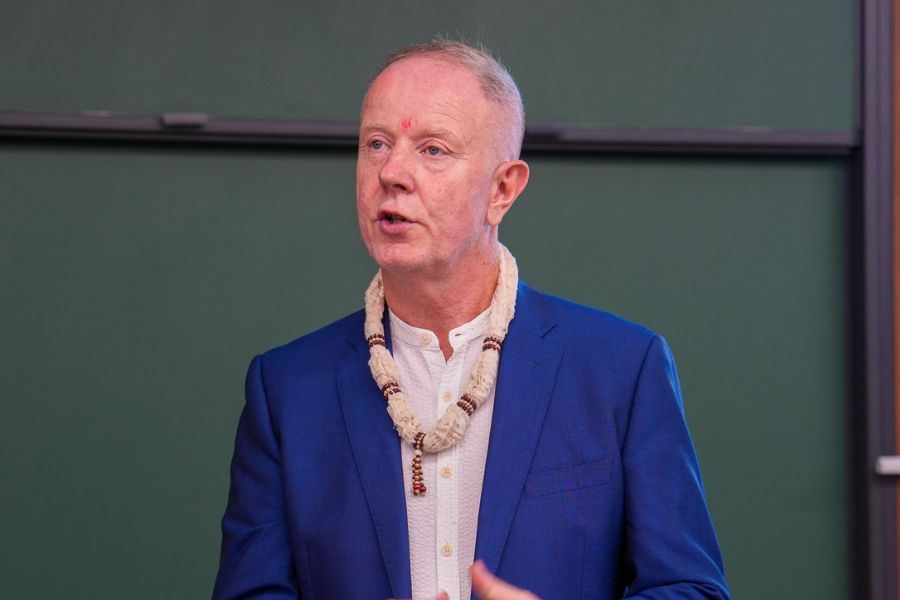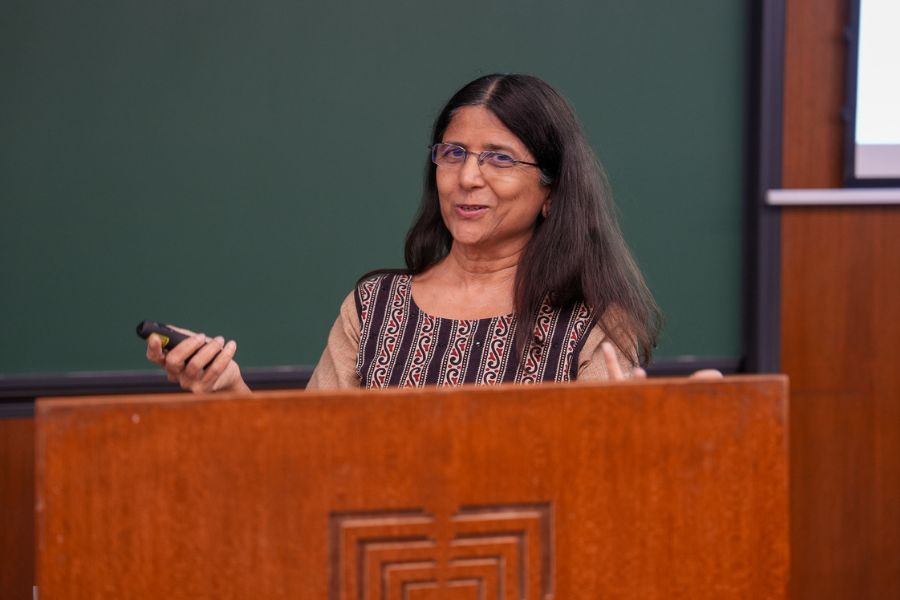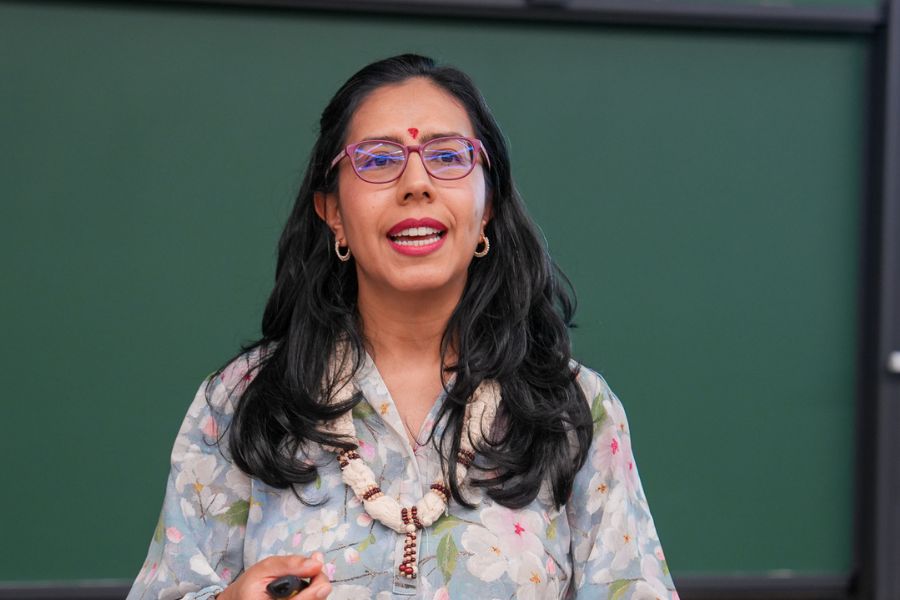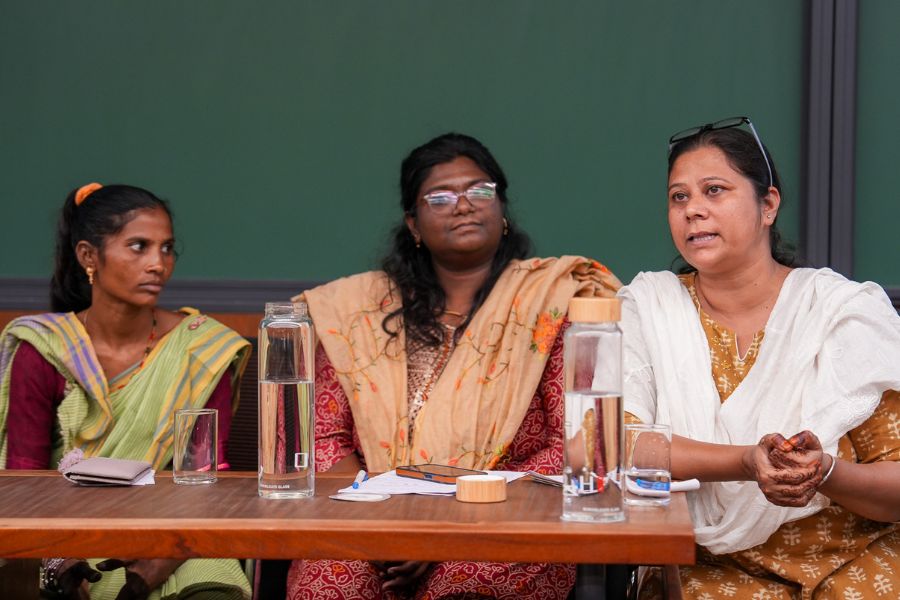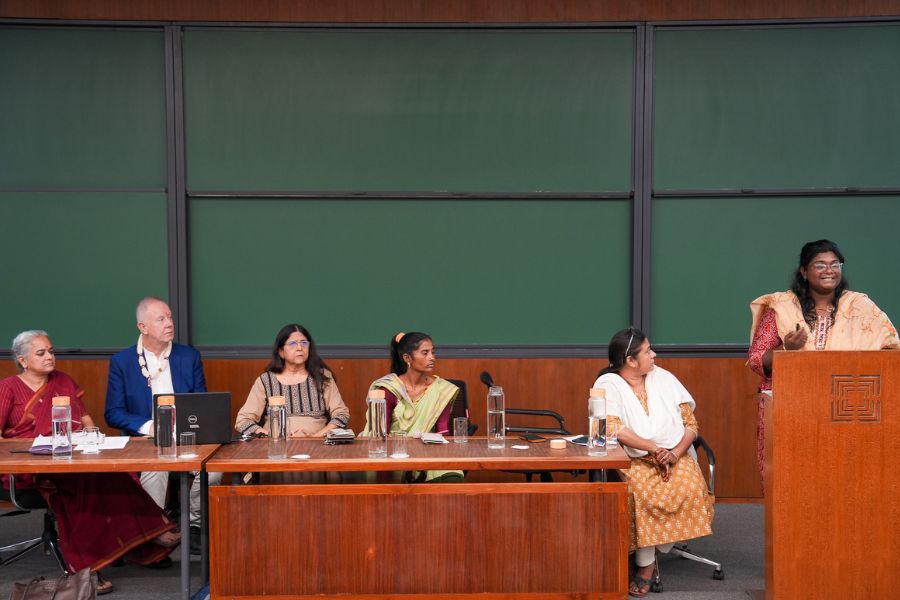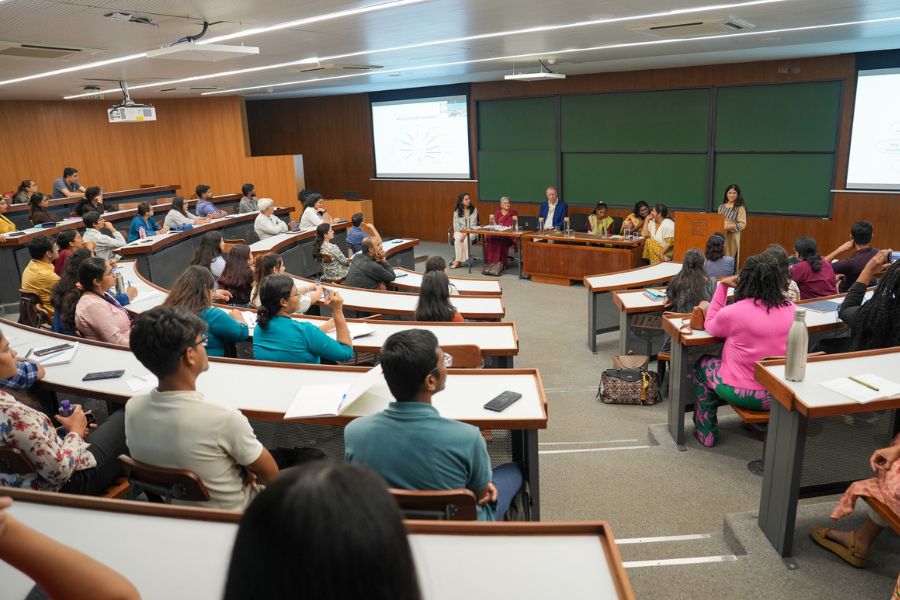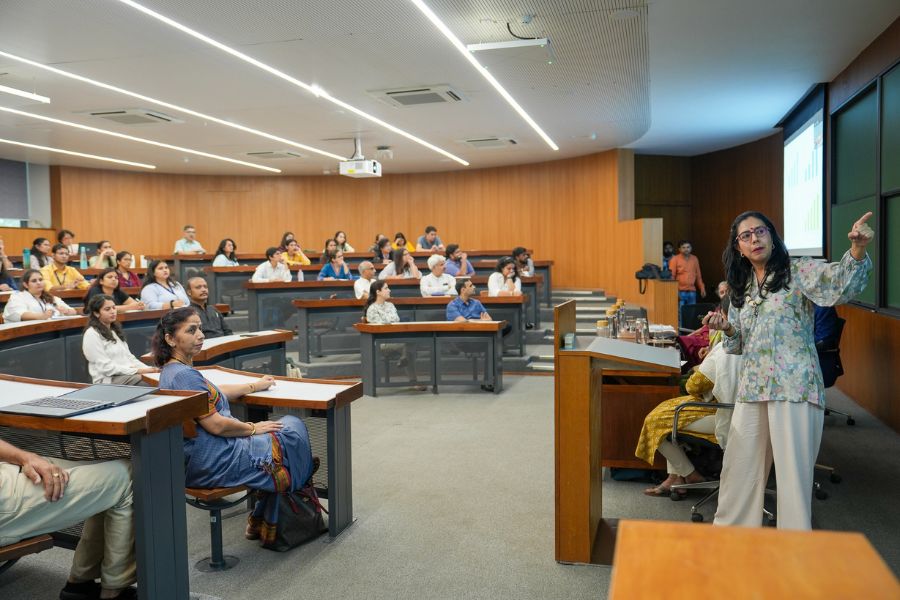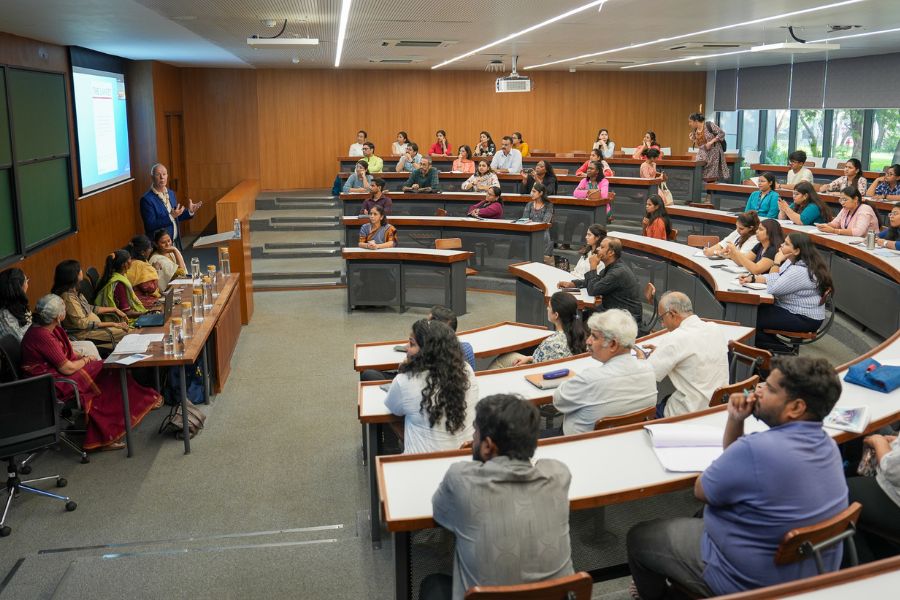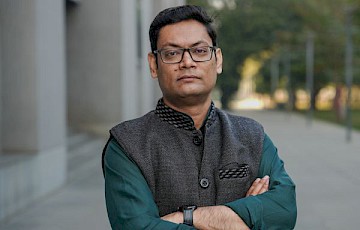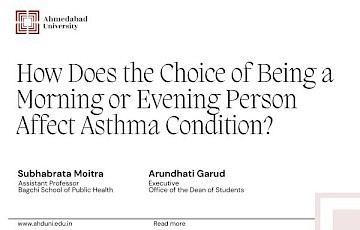18 October 2024
Oral Health Takes Centre Stage in Discussion on Health Inequities
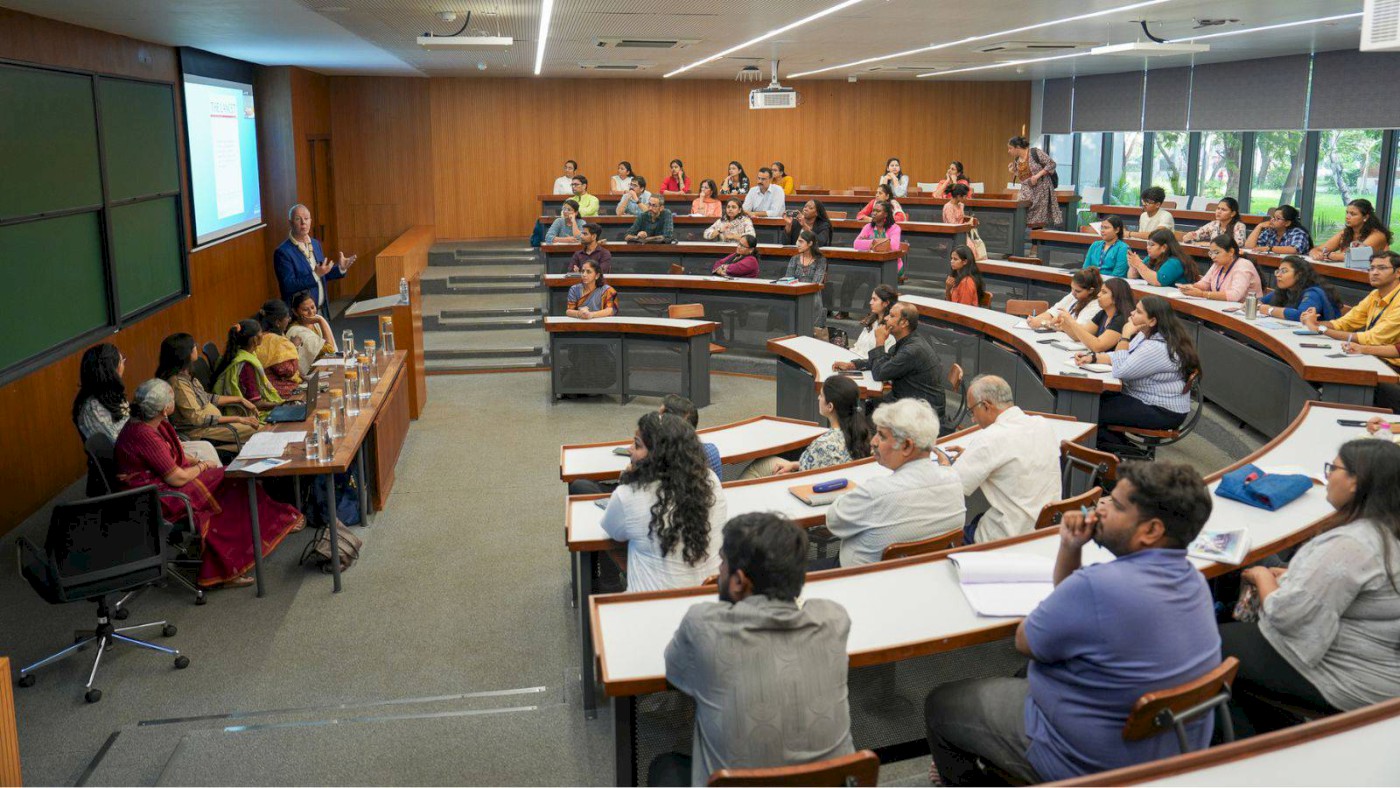
Oral health is increasingly being recognised as a priority area of health care across the world, particularly for the most marginalised and excluded groups. The medical journal Lancet asserts that “oral health is at a tipping point” and the World Health Organization (WHO) has also repeatedly flagged its importance.
This issue was the centre of a panel discussion on ‘Tackling Health Inequalities through Community Approaches: Focus on Oral Health’, jointly organised by Ahmedabad University, Sahyog and the Self Employed Women’s Association (SEWA), which brought together leading experts from the UK, India, and Colombia. The panellists included Varshaben Dabhi, SEWA grassroot leader; Carol Guarnizo-Herreno, Colombian public health dentist and researcher; Starry John Dcruz, Public Health Dentist, SEWA Programme Coordinator; Kaumudi Joshipura, Professor and Dean, Bagchi School of Public Health, Ahmedabad University; Yasmin Shaikh, SEWA Gujarat Health Co-ordinator; and Richard Watt, Professor and Honorary Consultant in Dental Public Health at the Department of Epidemiology and Public Health, University College London. The discussion was moderated by Mirai Chatterjee, Director of SEWA’s Social Security team, and Chairperson of the SEWA Cooperative Federation.
Professor Watt categorised health differences as ‘inevitable’ and ‘potentially avoidable or systematic, socially produced, and unfair inequalities’. Low socio-economic position is associated with dental caries, poor periodontal health, and even oral cancer, he said.
Dr Guarnizo-Herreno revealed that Colombia exhibits a high degree of inequality in health, exacerbated by the fact that it is located in South America, where lack of education and health insurance pose challenges for designing health improvement strategies.
Professor Joshipura described common risk factors for dental and overall health including age, smoking, obesity, and diabetes, and emphasised tooth loss as an easily assessable measure of health equity. Ahmedabad University’s Bagchi School of Public Health, with its mission of improving planetary health locally, nationally, and globally, is playing a critical role in improving health equity through prioritising no cost, low-cost, and cost-saving approaches to improving health.
Dr Dcruz outlined the key role of community engagement in reducing oral health inequalities, involving consultations with various stakeholders at the community level, including women, policymakers, anganwadi workers, and teachers.
The other panellists, Varshaben Dabhi and Yasmin Shaikh, also shared their experiences pertaining to oral health challenges in rural areas, such as low awareness and poor oral habits like tobacco consumption and smoking among a large section of the population.
The discussion ended with a description of the CORE (Community Focused Oral Health Research for Equity) programme, jointly led by health experts from the UK, India, Kenya, Brazil, and Colombia. The research work packages of CORE cover oral health inequalities, commercial determinants of inequities, and systems reform and innovation, along with training and capacity building initiatives, including MSc studentships, online training courses, mentorship programmes, and community training events.

